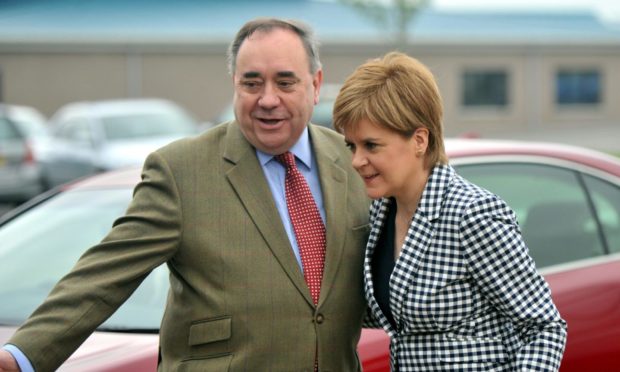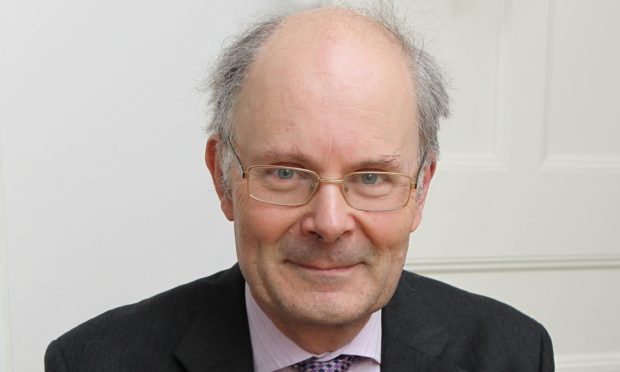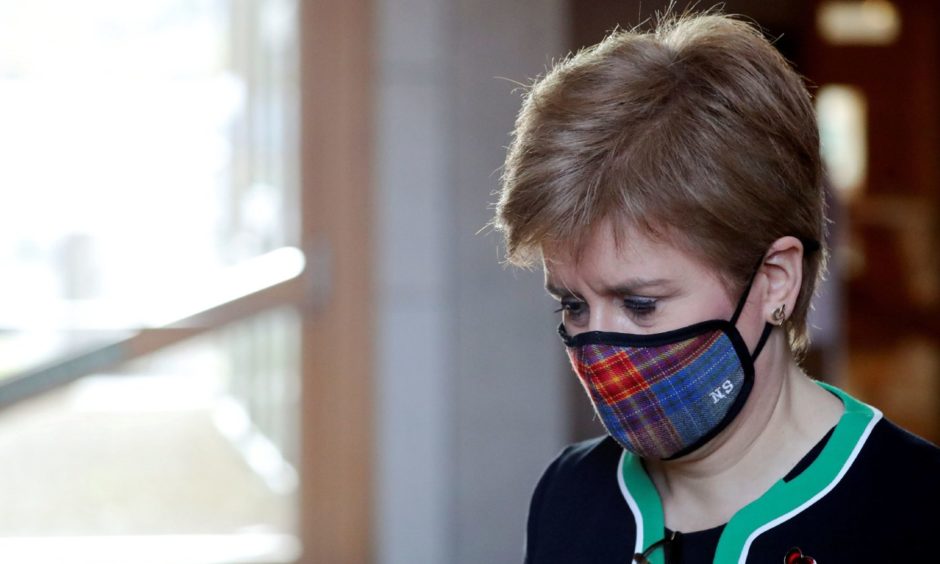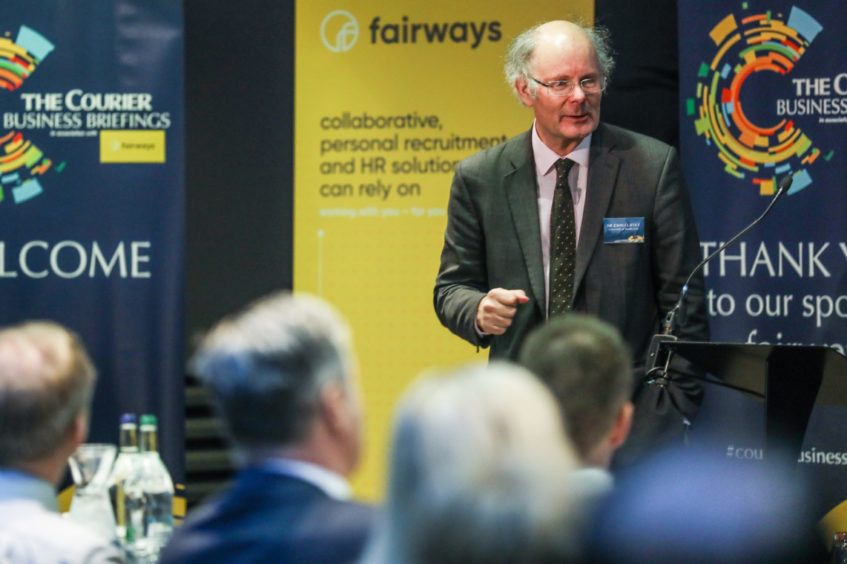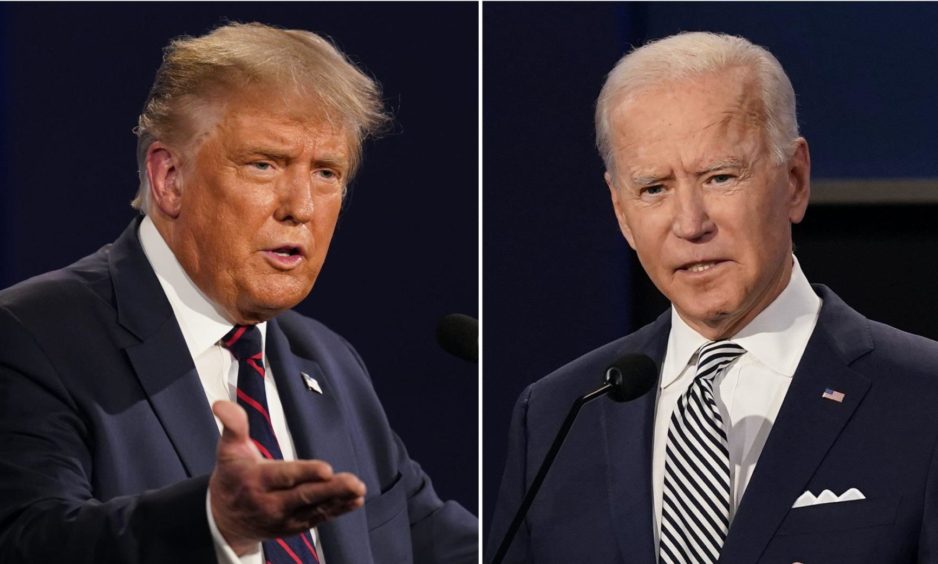The fallout from the Alex Salmond inquiry could cause “significant damage” to the SNP as it pushes for a new Scottish independence referendum, a leading polling expert has warned.
Speaking on DC Thomson Media’s The Stooshie podcast, Strathclyde University’s Professor Sir John Curtice said current data on the issue suggest Nicola Sturgeon is now more popular than Alex Salmond in the eyes of nationalist voters.
However, Sir John suggested the lingering impact of the case – and its effect on the SNP as it builds an argument for a new independence ballot – could be determined by what evidence the first minister and her predecessor present to the committee.
He said: “It’s terribly early days but we shouldn’t underestimate the fact that at the very moment when the prospects of the nationalist movement in Scotland being able to win a referendum have never looked better, there is this serious internal personality row, which might yet break out in such a way that causes the SNP significant damage.”
The polling expert said the coronavirus pandemic had helped to shield some of the issues from public awareness but that much of what happens next could rest on what claims Alex Salmond sets out to the committee.
Sturgeon’s star shines more brightly
“Presumably the allegation will be that there was a conspiracy to bring him down and he will want to give the impression that Nicola Sturgeon was party to that conspiracy,” Sir John said.
“So the question will be whether there was a conspiracy, rather than just a few cock-ups, and whether Nicola Sturgeon was party to that conspiracy. It’s on that, I think, that things will turn.
“The limited polling we’ve got on this suggests that maybe, at the moment at least, Nicola Sturgeon’s star shines much more brightly than Alex Salmond’s in the eyes of nationalist voters, let alone anybody else.”
In a podcast appearance where he also discussed the result of this week’s US election, Sir John said the Salmond inquiry was one of the few dangers hanging over the SNP as it attempts to win a majority at next year’s Scottish Parliament election.
A paper published this week, which Sir John co-authored, sets out how the UK Government’s pursuit of Brexit undermined confidence in the union in Scotland and has led to a swell in support for independence since 2016.
The report, published by whatscotlandthinks.org and the Scottish Centre for Social Research, found that all of the growth in support for independence in evidence prior to coronavirus occurred among those with positive views about EU membership.
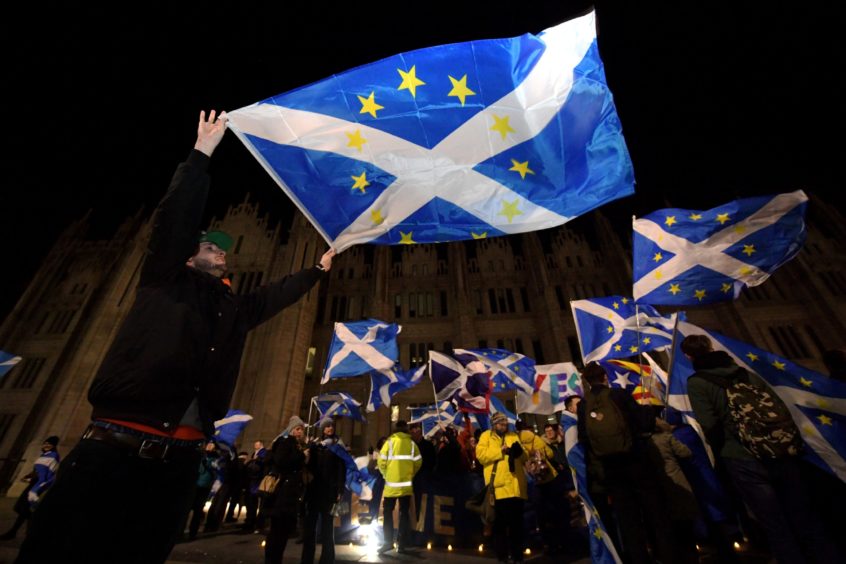
Sir John said the impact of the Brexit vote “took a while to kick through” but pushed up support for independence to around 50% before the coronavirus pandemic hit.
“Whatever happens with the pandemic, Brexit is going to be with us in any referendum that takes place in the relatively immediate future,” he said.
“The unionist side is going to have to tackle head on the consequences of Brexit as perceived by Scottish voters.”
Sir John said the ability of unionist politicians to “neutralise the Brexit issue” will rest on whether Remain voters can be convinced that leaving the European Union “wasn’t so bad, after all” – something he believes could be a tough ask.
Those looking to curb the move towards independence will also need to tackle a further surge in support during the pandemic, with 11 successive polls now showing sustained majority support for independence – currently at around 55%.
While voters may not be filled with confidence in pollsters following the narrow margins of a US election that some predicted challenger Joe Biden would win comfortably, Sir John insisted the polls “never told us it was going to be a landslide”.
He said: “If you took the averages, as of Tuesday morning there were nine states where the polls were saying that whoever was ahead was no more than two points ahead – in some cases they said it was absolutely even-stevens.
“When the polls tell you that the lead is two points or less, they are telling you: don’t ask us, we do not know who is going to win. This is literally too close to call.
“And these nine states were responsible for 159 electoral college votes. That’s far too many votes for anyone to be sure what’s going to happen.”
Incumbent Donald Trump went on to win four of the nine battleground states and while Sir John conceded some may have ended up more pro-Trump than predicted, the other five will likely finish with a margin of two points or less – as many polls predicted.
